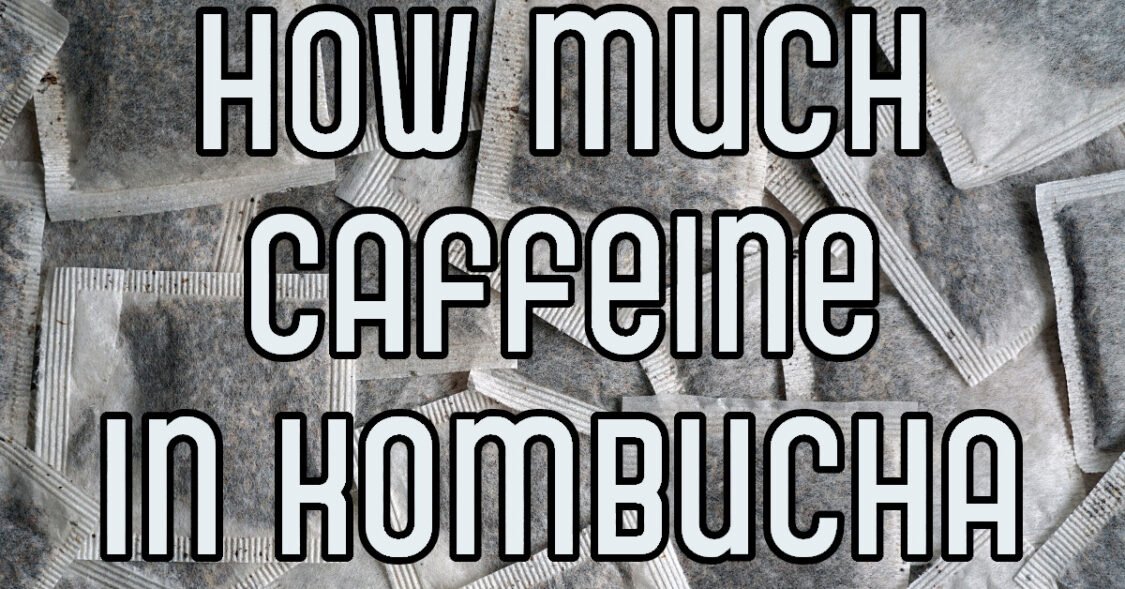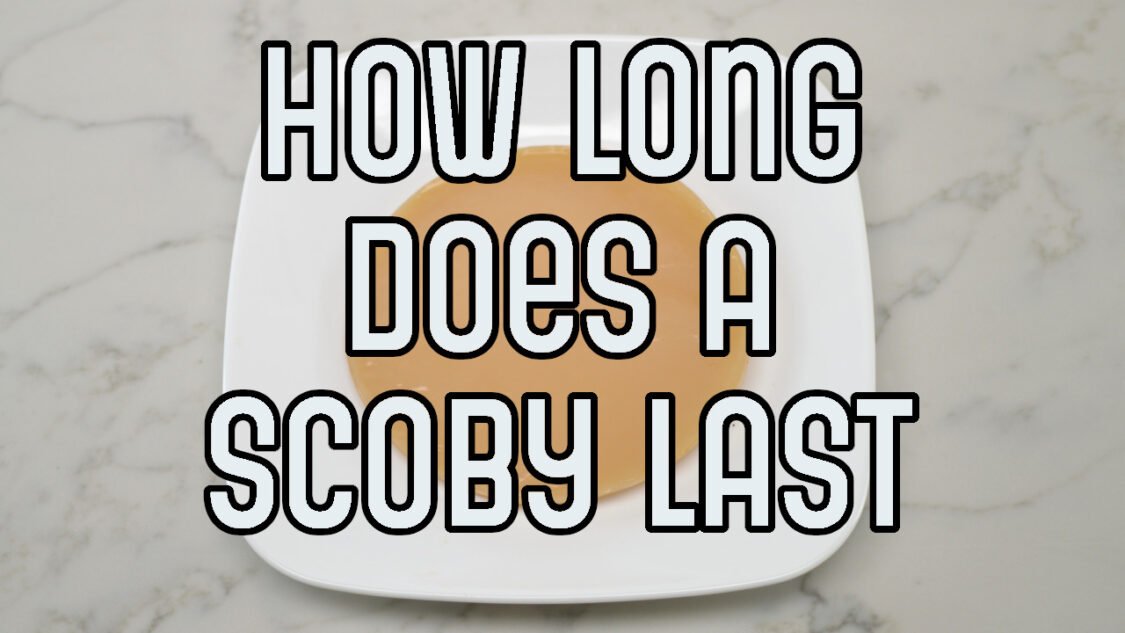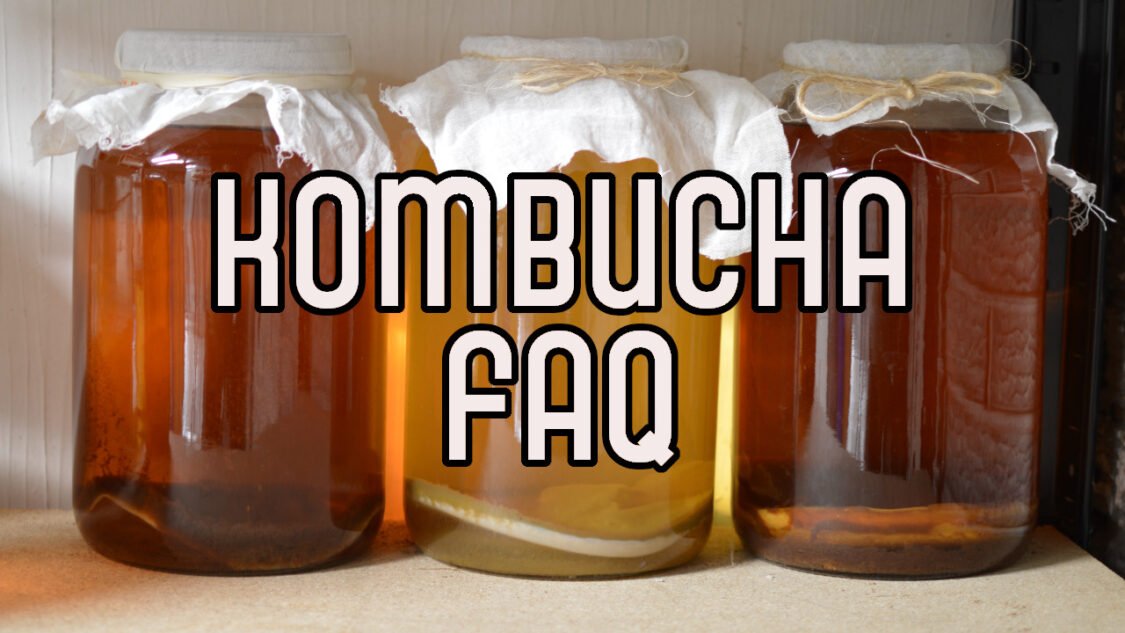Kombucha too Fizzy
Do your kombucha bottles gush and spray like old faithful when you open them? Read more about the causes and how to fix them.
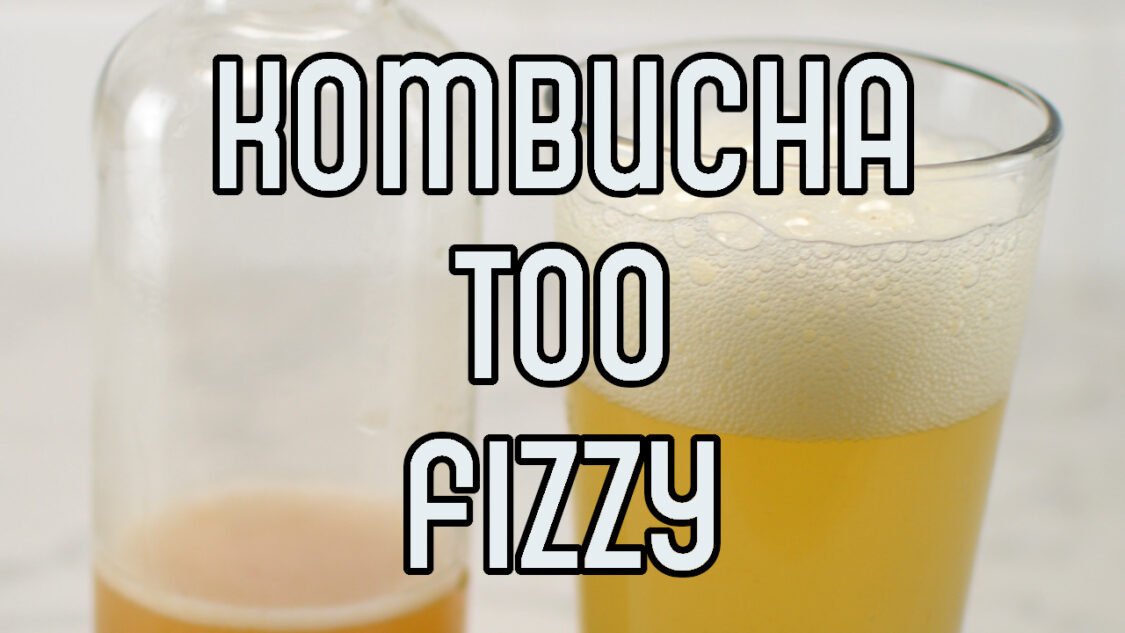
Believe it or not it is possible to have too much carbonation in your kombucha. The most common cause of over-carbonation is too much flavoring used, especially fruit or juices used in bottling.
What makes kombucha fizzy?
Carbonation makes kombucha and other beverages fizzy. During fermentation, yeast in the SCOBY consumes sugar and converts it into two byproducts–alcohol and carbon dioxide (CO2).
Even with a large SCOBY floating on top of your fermentor, most of the gas molecules escape into the atmosphere. If you were to cap off the fermentor during primary fermentation (DO NOT EVER DO THIS, your fermentor could explode) making it air-tight, the CO2 molecules will dissolve into the liquid and become carbonation, or fizziness!
What is Carbonation?
Carbonation as you just read, is simply carbon dioxide (CO2) dissolved in a liquid. In the case of kombucha the CO2 is a byproduct of the yeast consuming the sugar. When primary fermentation is complete and you bottle your kombucha with fruit, juice and/or sugar, the CO2 produced by the yeast dissolves into the liquid to create the carbonation.
This is called natural carbonation. Alternatively CO2 can be forced to dissolve into the liquid under high pressure, a technique called forced carbonation. This is typically how kegged and bottled beer is carbonated to a precise level. Many commercial kombuchas, sodas and sparkling waters are carbonated this way.
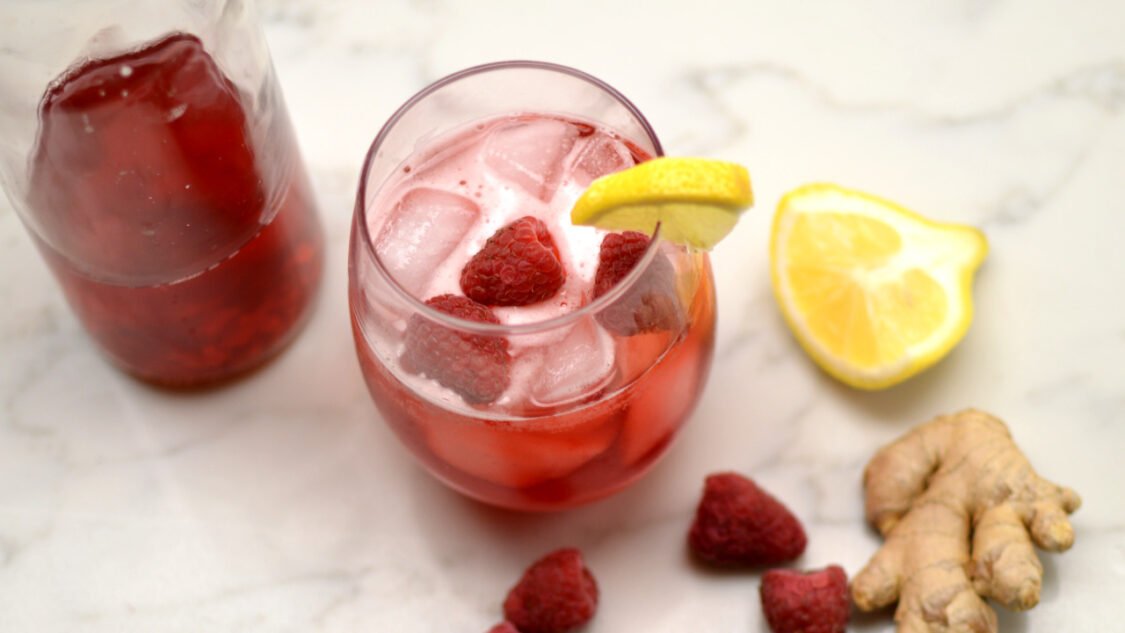
What Makes Kombucha too Fizzy?
There are a few main reasons why kombucha becomes over-carbonated:
Too much fruit, juice or added sugar – using too much fruit, juice, fruit puree or sugar will give more food for the active cultures in the kombucha to turn into carbonation.
Secondary fermentation too warm – ensure your fermentation area is from 68-80F; Warmer temperatures will make the culture in kombucha more active which can cause them to more rapidly convert sugar into carbonation.
Secondary fermentation too long – Don’t do a secondary fermentation at room temperature for too long. Similar to too warm, a too long fermentation will give the microbes more time to digest the sugars in your kombucha. Typically 3-10 days is enough to get the desired flavor and level of carbonation.
Opening a warm bottle – More carbon dioxide remains in a cold liquid than in warm. Like opening a warm beer or soda will cause a gusher (and the liquid to quickly go flat) the same occurs with kombucha. Make sure your kombucha is well chilled before opening a bottle.
How to fix over carbonated kombucha
If you find yourself with a batch of kombucha which is over carbonated don’t despair, here are the steps you can take to reduce the carbonation:
- First, chill a few bottles completely in the refrigerator
- When cool, gently twist (or flip) the cap a tiny bit to allow some carbonation to escape.
- Watch carefully as the fruit and foam heads toward the mouth and be prepared to quickly close the bottle again just before liquid starts to come out.
- Replace in the refrigerator and repeat every two to three hours (or longer) until the desired carbonation level is reached.
You may find that only some bottles of your Kombucha are too fizzy, which could indicate a variation in the amount of fruit or sugar in the bottles or some bottles were fermented warmer than others.
Carbonation tip: when bottling your kombucha fill a sealable plastic water bottle and occasionally squeeze the bottle to gauge carbonation. When the bottle is firm, your kombucha is ready to move to the refrigerator and enjoy. After doing this a for a few batches you will have a better idea of how long it takes for your kombucha to be carbonated to perfection.
Helping you learn to brew kombucha, find inspiration for new kombucha flavors and use kombucha to make kombucha mocktails

